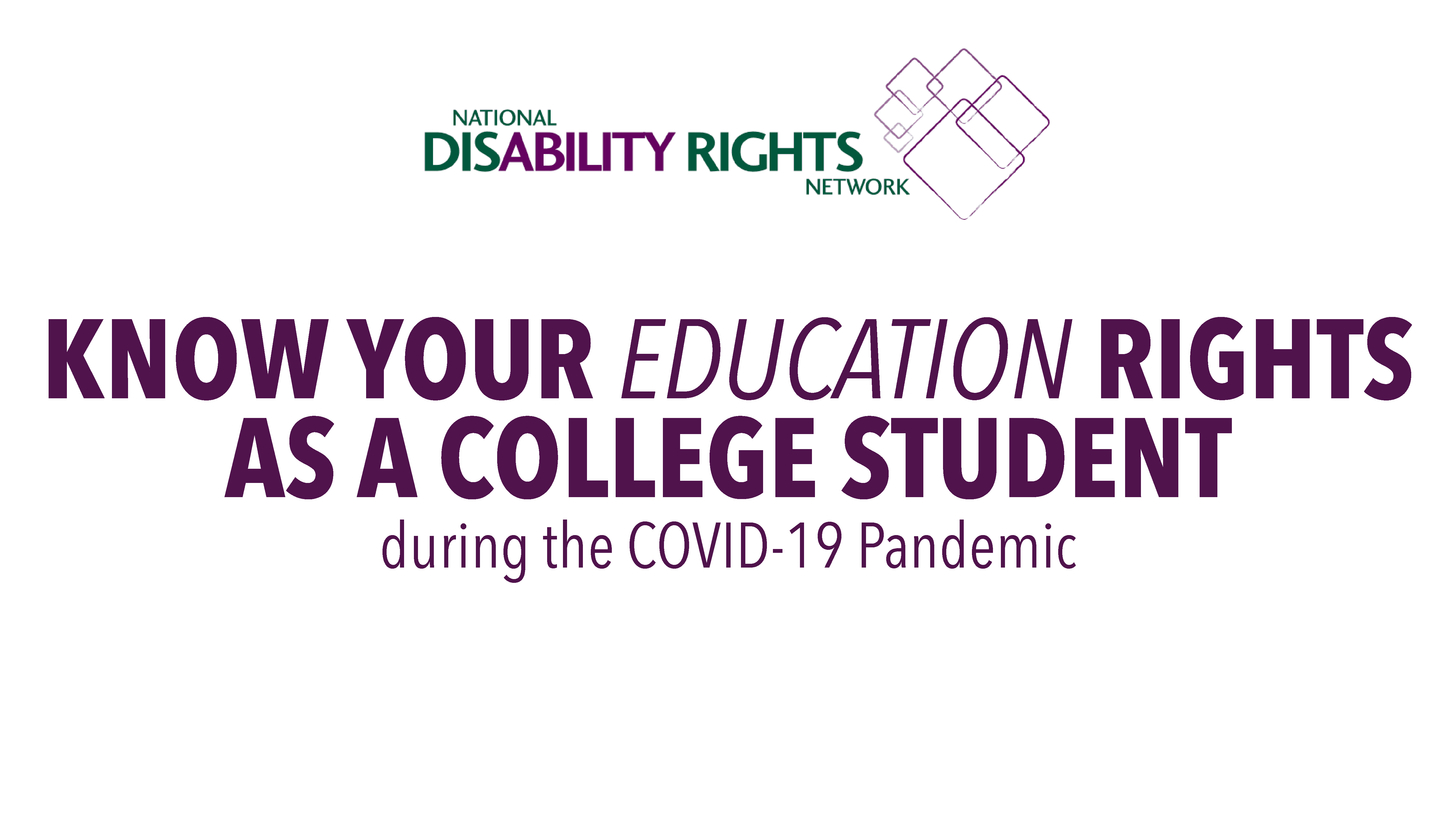College students with disabilities have the right to access education during the Coronavirus pandemic! Most college/university campuses have temporarily closed for the spring and remain uncertain about when on-campus courses will resume. But whether classes are held online or on campus, students with disabilities still retain the right to receive reasonable accommodations and academic supports.
Ron Hager, our Managing Attorney for Education and Employment, has a message for college students. Check out this video for a few self-advocacy tips and some actionable steps for requesting additional assistance.
Rights of College Students During the Coronavirus Pandemic
As a college student with a disability, you still have rights during this unprecedented time. These rights apply to any higher education program—trade or technical school, college, or university. Remember, the same rights applied before COVID, during COVID, and after COVID. So what are they?
Section 504 and the Americans with Disabilities Act (ADA)
Prohibits discrimination because of disability in all the programs and services they offer
What does this mean?
Colleges must make sure you can access all of the services they provide. Since most campuses are temporarily closed, this means that access must still be provided via Online content. Even though everything is online, everything must be accessible based on your individual needs. Accommodations may include:
- Notetaker or another way to capture lectures
- Closed captioning or CART services
- Written materials accessible to screen readers, such as JAWS
- All written materials, such as textbooks, available in alternate formats
- Technology platform college uses must be compatible with what you use
- Extra time to complete homework and tests
What if they are not providing access, what can I do?
- You should already have a Section 504/accessibility plan in place. Does it need to be modified? If so, contact your disability services office.
- If the problem is a professor who is not doing what is needed, start with that professor and express your individual needs/specific accommodation requests.
- If that doesn’t work, contact your disability services office and ask for assistance/advocacy support.
- If necessary, contact top-ranking college officials. Or, look for an outside advocate such as those available at your state or territory’s Protection & Advocacy agency.
A Few More Self-Advocacy do’s and don’ts
- Be polite, shouting is typically ineffective.
- Be specific. For example, “I am supposed to have accessible materials, but I keep getting documents which are scanned and my screen reader can’t read them.”
- Be persistent. Don’t quit until you reach a resolution that meets your educational needs.
- Be creative. The best ideas mainly come directly from innovative solutions created by people with disabilities themselves. Do a bit of research or reach out to other students with disabilities to discover new techniques, programs/technologies, and additional supports.
<< Return to “Know Your Rights during the COVID-19 Pandemic” main page

